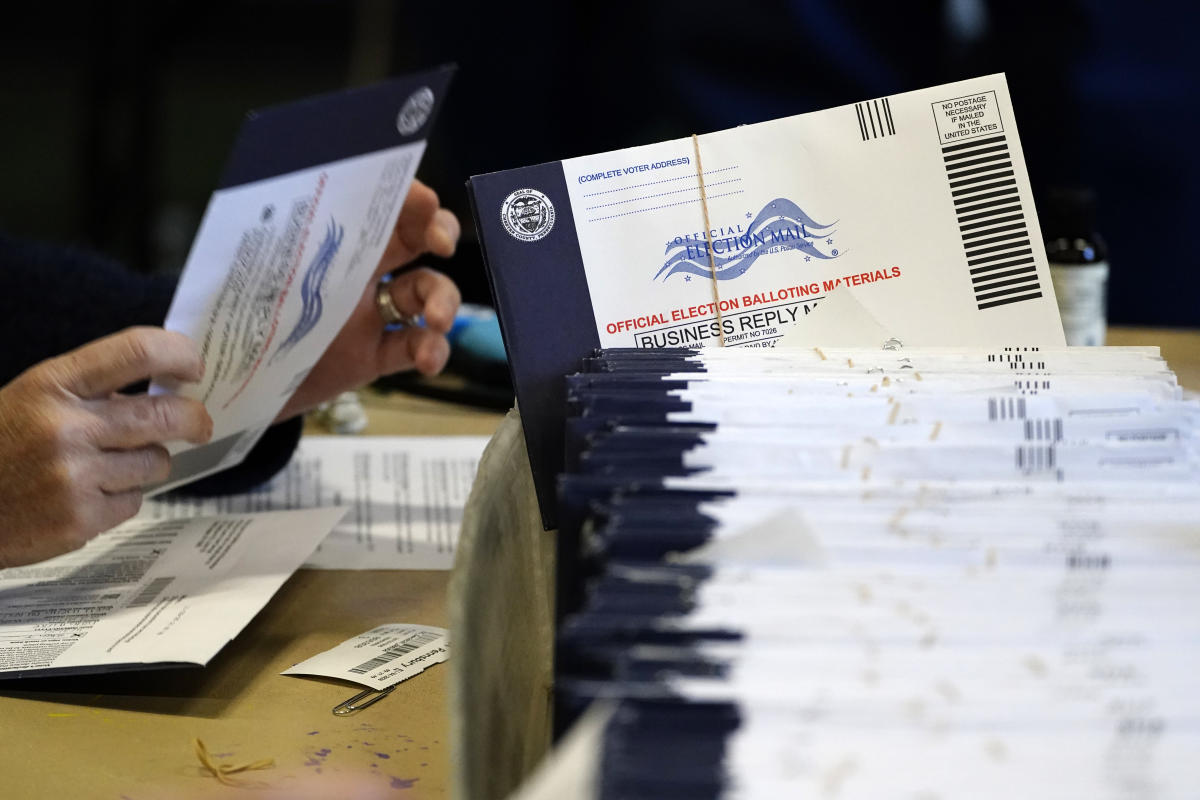
A conservative University of Wisconsin regent is refusing to step down even though his term expired this month, continuing a recent trend of holdover appointees.
Then-Republican Gov. Scott Walker appointed Bob Atwell to the UW Board of Regents in 2017. His seven-year term ended May 1 but Democratic Gov. Tony Evers has yet to name a replacement.
Atwell emailed UW System leaders last week about his plan to continue serving until he resigns or his successor is confirmed by the GOP-controlled state Senate, citing advice he said he received from Assembly Speaker Robin Vos, R-Rochester. Vos’ office did not return a request for comment.
Atwell’s decision comes as Republican legislative leaders are in court appealing a ruling that allows the state’s top election official to stay in her position well after her term has expired.
Here’s what to know:
Who is Bob Atwell?
Atwell is the founding CEO of the Green Bay-based Nicolet National Bank. He is one of two remaining Republican appointees on the 18-member board.
Atwell is among the most candid of regents during public meetings, unafraid of calling out problems as he sees them.
In Atwell’s email to UW System President Jay Rothman and UW Regents President Karen Walsh, he praised their leadership. But he also drew attention to the UW System’s “stunning absence of and frequent misuse of data.” He questioned why an outside firm needed to be brought in to analyze universities’ financial health. He also cited frustration with his requests for COVID-19-related data going unanswered by UW System.
Responding to the criticism, UW System spokesperson Ethan Schuh said there were limits to what COVID-19 information was reported and what was collected. But the public reports were “some of the more extensive” for a public university system nationally, he said.
Rothman has previously said an independent outside review is not unusual for an organization and also a good business practice, Schuh said.
Why is Atwell staying on past his term?
In Atwell’s email to UW leaders, he said he hoped his “temporary continuation as a regent” would improve communication between the Legislature and the board.
Walsh replied, saying she believed what he was doing was neither in the board’s best interest nor what the Legislature intended.
“I realize that there is zero incentive for the legislature to fix that loophole, as it appears to be a useful lever to thwart a governor of the party opposite of legislative leadership,” Walsh emailed Atwell. “It will also make things unnecessarily challenging for your successor. Perhaps it’s unlikely you will reconsider, but I would certainly welcome it if you did.”
Atwell, in his response, noted his replacement hadn’t even been named.
“I have not decided if I am hanging out for one meeting or more,” he wrote, adding: “It is not the governor’s Board. He appoints and the Senate confirms or not. I have been impressed with many of his appointees. I have not been impressed by the UW’s appreciation for the role of the legislature in funding and oversight.”
Atwell told the Milwaukee Journal Sentinel he didn’t have motives beyond what he emailed Rothman and Walsh.
“Governor Evers has appointed some outstanding regents, but he has not yet announced his nominee for the seat I have held,” Atwell emailed the news site. “I have served with outstanding regents of both parties over the last seven years. The efforts we have made on strategic planning do not drive to the depth needed to help the UW sustain and improve its service to the entire state.”
Who is supposed to replace Atwell on the UW Board of Regents?
New regents are typically named in late April or early May. But Evers hasn’t announced Atwell’s replacement. His press office did not respond to a request for comment Tuesday.
The naming of a replacement kicks off the process where the Senate would vote on the appointee.
The Legislature is not scheduled to return until early next year.
Can appointees serve beyond their terms?
The state Supreme Court ruled in 2022 that political appointees can remain in their posts until the Senate confirms their successor because the expiration of a term doesn’t in itself create a vacancy.
The ruling was a 4-3 decision by conservatives, two of whom have ties to Walker. It stemmed from a case involving Fred Prehn, a Wausau dentist who wouldn’t step down from the state Natural Resources Board. He eventually resigned at the end of 2022, roughly two years after his term expired.
Prehn’s refusal to step down ensured Republican appointees retained a 4-3 majority on the board. He cast the deciding vote to increase the quota for the state’s wolf hunt and to scrap limits of so-called forever chemicals in groundwater.
Who else has served beyond their term?
Prehn paved the way and other appointees have followed.
Walker appointees Mary Williams, Kelly Tourdot and Becky Levzow served on the state Technical College System board for nearly two years beyond their terms. Their decisions to stay were less consequential than Prehn’s because the overwhelming majority of the Technical College System Board’s votes unanimous.
It’s unclear why the women chose to continue serving beyond their terms and what Republicans gained from their decisions. They declined to speak with reporters and didn’t offer an explanation in their December 2022 resignation letters.
More recently, Wisconsin Elections Commission administrator Meagan Wolfe has gotten tied up in the appointment process.
When Wolfe’s term expired last June, the six members of the bipartisan elections commission agreed Wolfe should stay in her job but failed to find consensus on how to respond to an effort by Senate Republicans to oust her.
The commission failed to put forward the four votes required by law to reappoint Wolf. Democratic commissioners argued the state Supreme Court ruling on Prehn allowed other appointees to stay in their positions beyond the expiration of their terms.
Senate Republicans decided to move forward anyway with a party-line vote rejecting Wolfe. Senate Majority Leader Devin LeMahieu, R-Oostburg, contended the 3-0 commission vote that resulted in a failed motion to reappoint Wolfe was actually enough votes to reappoint Wolfe, even though state law says such votes require a majority of commissioners, or four votes.
Minutes after the Senate vote, Democratic Attorney General Josh Kaul filed a lawsuit asking a judge to block Republican legislative leaders from appointing a new administrator and to declare Wolfe administrator, arguing the Senate did not have the power to oust her.
A circuit ruling ruling found Wolfe is lawfully holding over in her position. GOP lawmakers appealed in February.
Wolfe has been at the center of a political firestorm involving former President Donald Trump’s baseless election claims about Wisconsin’s 2020 presidential election. President Joe Biden defeated Trump in 2020 by about 21,000 votes in Wisconsin — a result that has been confirmed by two recounts paid by Trump, state audits, a partisan review, a conservative study and multiple lawsuits.
This article originally appeared on Milwaukee Journal Sentinel: UW Regent Bob Atwell isn’t stepping down from board despite term ending
Signup bonus from


